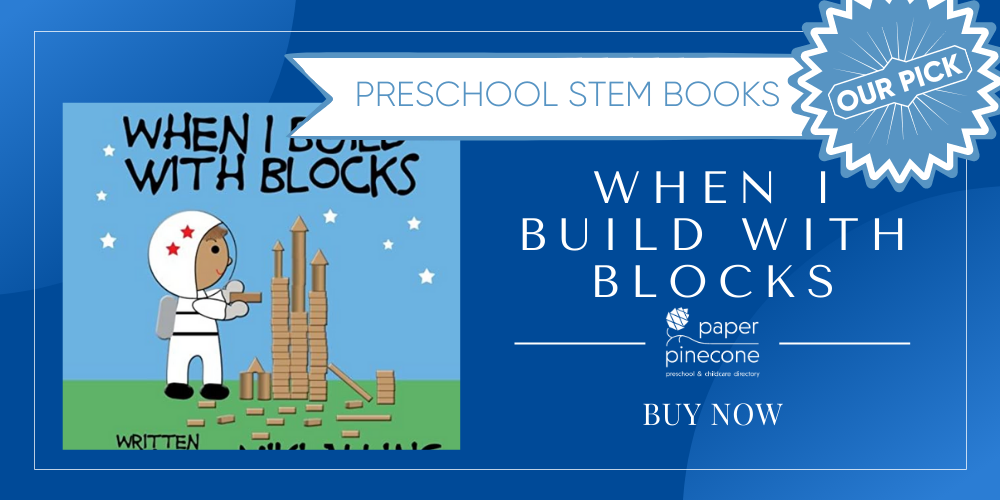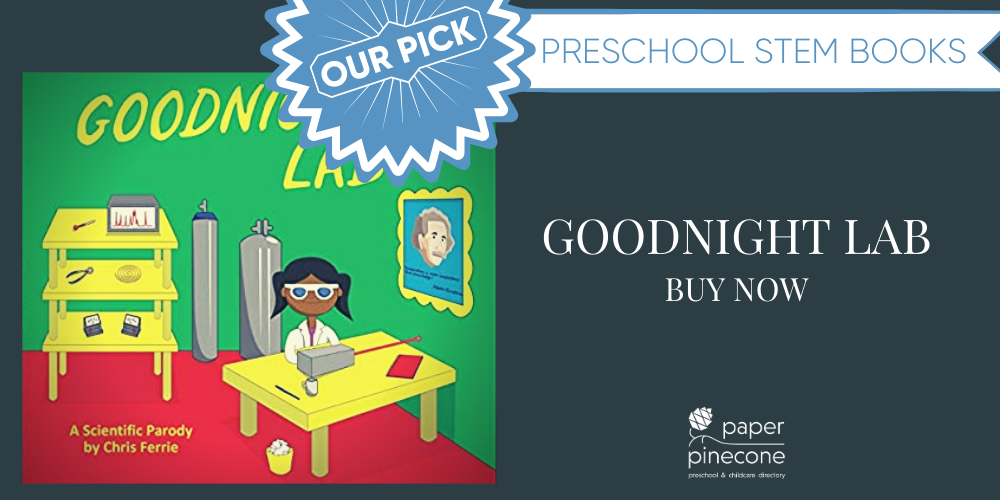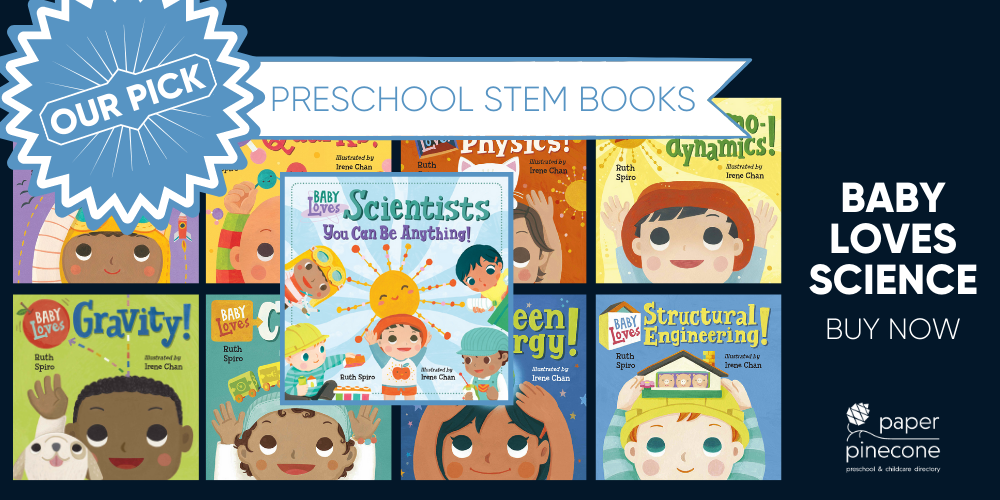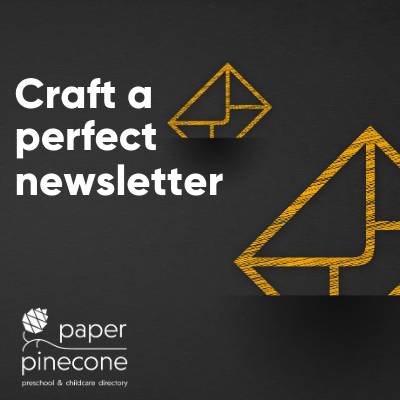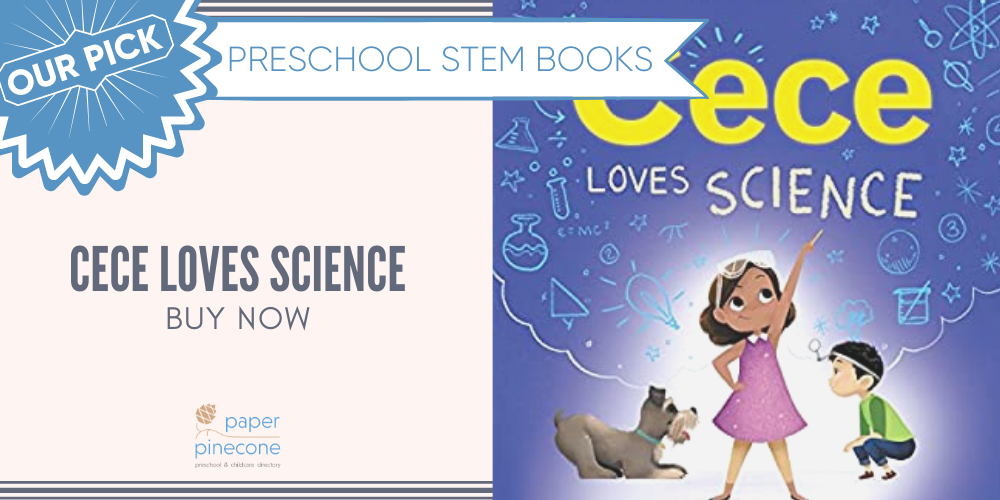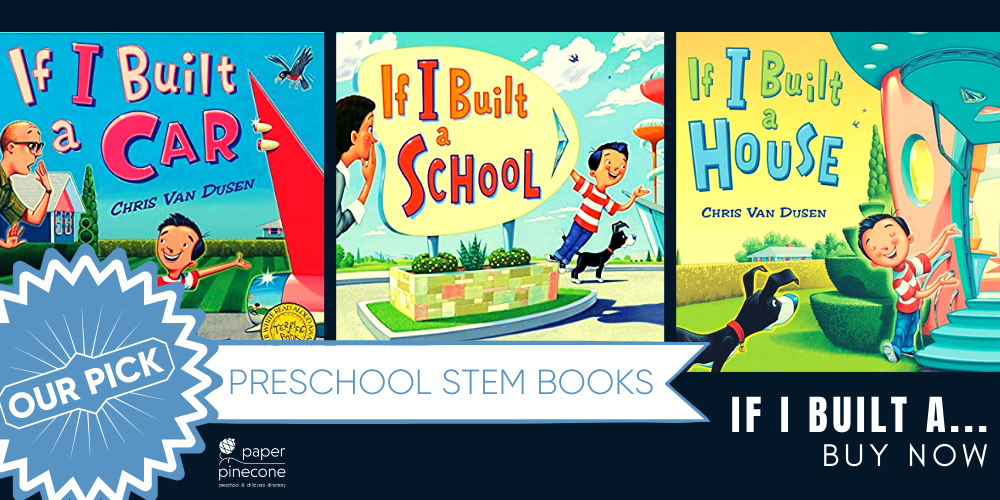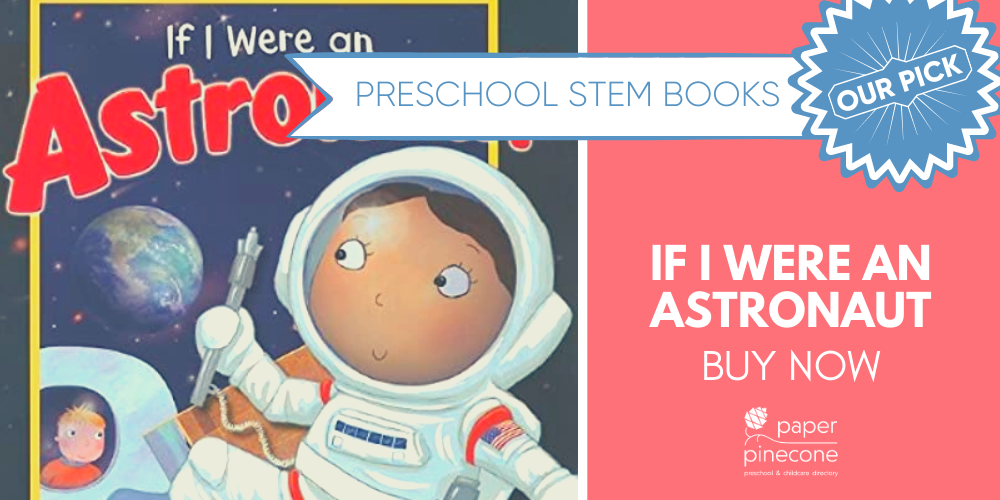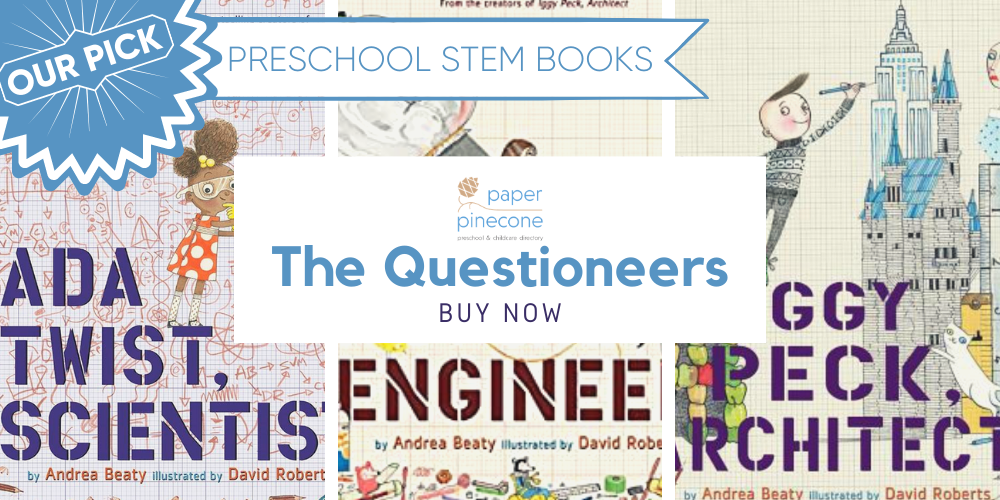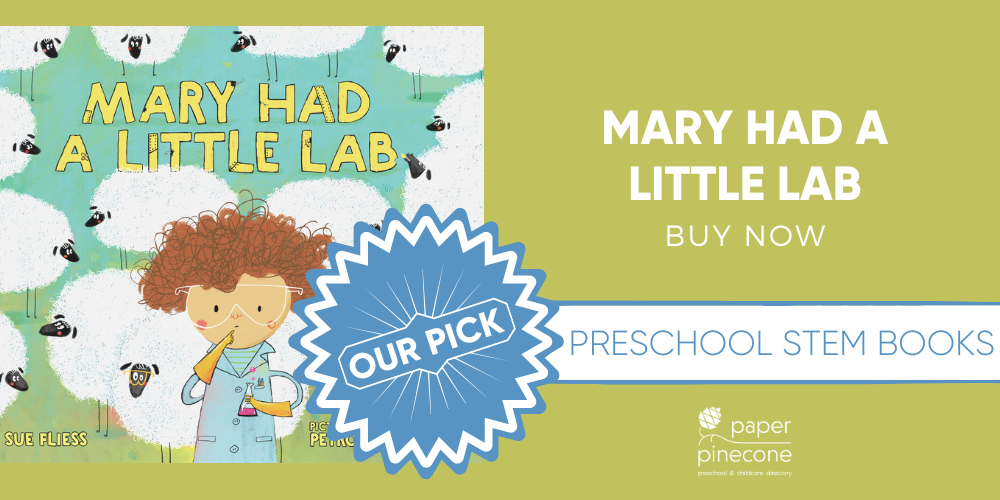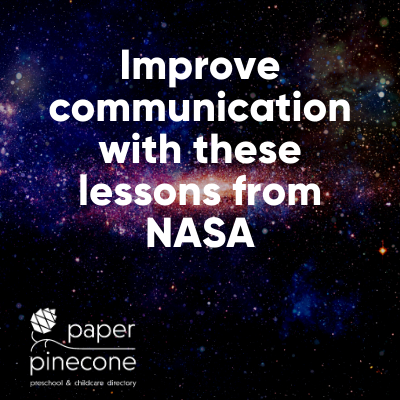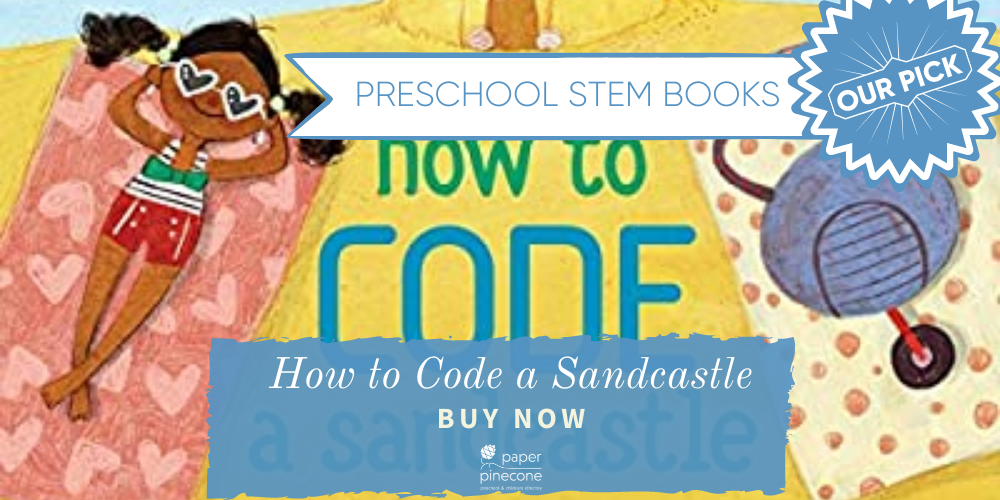10 Reasons Why STEM Is Important in Preschool

Published Date: 12/03/20
10 Reasons Why STEM Is Important in Preschool
While many preschools spend much of their day helping children learn early reading skills and preparing little ones for kindergarten, many schools are beginning to see the benefit and the need to introduce STEM concepts during these early education years.
HOW PRESCHOOLS CAN INCREASE REVENUE AND CASH FLOW DURING COVID-19
There are many reasons to include STEM education in the preschool classroom. It's more than creating a classroom full of engineers and web developers - STEM has lasting benefits for kids throughout their education and into their adult lives. Read on to learn more about why STEM should be an integral part of your preschool classroom.
1. What Is STEM and What Does It Look Like in the Preschool Classroom?
STEM stands for Science, Technology, Engineering, and Mathematics. In recent years, STEM has become a focus in education because there has been a lack of focus on these skills in schools, yet an increase in the need for these skills in current and future jobs.
SPOTS TO FILL? LET US HELP – FREE! REGISTER NOW ON PAPER PINECONE
In the preschool classroom, STEM activities are based on curiosity, inquiry, and play. The teacher sets up STEM-based lessons, such as science experiments or engineering challenges for students to complete as a class or in groups. The teacher also provides opportunities for STEM exploration during free play, such as having building toys and math games available to the students.
Now you know what STEM is and what it should look like in a preschool classroom, but why exactly is it so important? Do all kids need STEM skills, even those who aren't destined for a career as engineers or computer programmers? Read on to find out just why STEM is so important for all kids.
2. STEM Teaches Critical Thinking and Problem-Solving Skills
Educators agree that critical thinking and problem-solving skills are among the most essential skills students can learn. Because of the nature of technology, our society is evolving rapidly and often in unpredictable ways. Our students are facing a future with complex challenges, such as climate change and unknown problems.
RELATED: TEACH CHILDREN TO COMMUNICATE, NOT JUST TO WRITE
Since there are no easy answers to the problems of the future, and since we don't even know what types of jobs may or may not exist for kids in the future, the best way to prepare them is to teach them critical thinking and problem-solving skills.
STEM activities naturally encourage these types of thinking. For example, from the outside, a kid participating in a "Will it sink or float?" experiment may seem like she's just playing in the water, but in reality, she is carefully considering each item, making predictions, and then analyzing the item's features to see why it gave a particular result.
Critical thinking and problem-solving skills transfer to almost any type of career kids may choose. These skills are also necessary for everyday life.
3. Kids Learn a Lot During Their First Five Years
The first five years of life is considered to be a critical stage of development. Children's brains are rapidly making connections, at speeds they'll never reach again. If the links aren't created and fostered, the neural pathways go away.
"Unlock creativity with wooden building blocks set"
IS YOUR SIGNAGE HURTING YOUR BUSINESS? FIND OUT?
STEM teaches the importance of making connections and helps to build these pathways. It makes sense to introduce STEM during the time in children's lives when their brains are primed to take in new information.
4. STEM Teaches Important Foundations for Math and Science
Math and science are often two subjects that give kids the most trouble later in their education. This struggle may happen because students haven't built a strong enough foundation in math and science during their early years of learning. The preschool and early elementary years are often centered around teaching children to read, and much of the math done during this time is rote memorization. While reading and basic math skills are fundamental, it's important to start developing STEM skills at an early age as well.
RELATED: KEEP YOUR PRESCHOOL ORGANIZED WITH THESE TIPS
STEM isn't about memorization. Instead, it's about learning how to think about complex subjects like number theory and programming. While these topics may seem far beyond the level of most preschoolers, if you start with some STEM basics, you'll be surprised at what three- and four-year-olds can learn.
5. Preschool Is the Perfect Age for STEM Activities
Many preschool teachers shy away from the idea of doing STEM in their classrooms, thinking that it's a topic suited to older kids. However, preschoolers have a natural curiosity that is unmatched by other age groups, and kids begin developing STEM skills such as inference and cause and effect by their first birthday.
Preschoolers are always asking why. They want to know how everything works and why things happen the way they do. These are concepts that are addressed by STEM topics.
RELATED: WOULD YOU GET RID OF ALL OF YOUR TOYS? THIS PRESCHOOL DID
STEM doesn't have to be a group of toddlers sitting at computers, furiously typing code. It can be simple experiments, like rubbing a balloon on a student's hair and talking about static electricity. It can be a STEM center, with building kits and other STEM toys for kids to explore. At its best, STEM can take some of your preschoolers' many questions and answer them.
6. Preschool STEM Can Foster a Lifelong Love of Learning
As educators, one of our primary goals is to engender a love of learning in our students from an early age. Studies show that many kids grow disenchanted with education much earlier than when we usually think - some even as early as preschool and kindergarten.
INCREASE ENROLLMENT BY REGISTERING ON THESE DIRECTORIES
Kids don't dislike school because they don't want to learn. Instead, they don't like the way they're learning. Kids learn through play and hands-on experience. Many preschools are moving to a more worksheet-based system, which doesn't foster playtime or a lot of excitement from kids.
STEM, by its very nature, encourages play and experimentation. There isn't a lot of room for worksheets during a STEM lesson. As a result, kids have fun, they learn, and they develop a love of learning.
7. STEM Helps Kids Learn to Work With Others
Group work is an integral part of education because it's an essential part of life. Very few of us work alone, and the sooner kids learn how to cooperate and collaborate, the better off they will be.
STEM challenges are an excellent way to get students working together. Kids will have to present their own ideas, listen to others, and work together to come up with the best solution. Group work also holds kids accountable for participation. The social skills kids learn from collaborative work is transferable to almost any path they choose to take.
CONTENT MARKETING FOR PRESCHOOLS – LEARN WHY YOU MUST HAVE A BLOG
STEM also helps kids learn that generating lots of ideas as a group often helps us come to the best solutions. Creativity feeds creativity. Many of our most difficult problems will be solved by groups of people innovating on one another's ideas, not a person working alone. Kids need to develop a collaborative mindset at an early age.
8. STEM Actually Helps With ELA Skills
STEM can help build ELA skills, particularly vocabulary growth. STEM introduces kids to an entirely new set of vocabulary, words they may not hear otherwise. Older students often have trouble in science and math because the language is unfamiliar. Not only are they struggling with advanced concepts, but they are also working to understand the words used to describe these concepts.
THE MILLION WORD GAP – WHY READING TO CHILDREN IS SO IMPORANT
By introducing STEM during the preschool years, we can expose our students to upper-level vocabulary at a young age and prepare them for the work they will do in the future. While younger kids may not fully understand all of the terms used, they'll become familiar with these words and develop a sense for how we talk about STEM topics.
9. Students Can Get Real-World Experiences
Much of the preschool day is spent on constructed learning. Kids count objects, identify letters, and figure out how to hold a pencil. All of these skills have a place in the classroom and the real world, but they don't feel authentic. STEM allows us to give our students real-world challenges and authentic learning experiences.
THE 1 QUESTION YOU MUST ASK PARENTS
10. STEM Boosts Creativity
While we tend to associate creativity with music and art, kids can have some of their most creative ideas during STEM lessons. Many STEM challenges are open-ended, meaning kids are given a question or problem and only minimal guidance for coming up with an answer. Students will have to be creative to come up with their solutions.
Consider a building challenge. Give kids a few basic materials, ask them to build the tallest structure they can, and you'll get wildly different results. These types of lessons require significant amounts of creativity from students.
For example, students can use different craft materials to build structures or bridges. They can then test the strength of their constructions. This type of work is similar to what engineers do in the field.
Final Thoughts
The benefits of STEM in the preschool classroom are numerous and far-reaching. Kids who have a solid foundation in STEM skills will perform well in their later school years and have the problem-solving skills they'll need to face a technologically unpredictable future. Now that you know the benefits of STEM, it's time to start including STEM topics in your weekly lesson plans.
FAQ about STEM in Preschool
1) What are some benefits of introducing STEM concepts in preschool?
Introducing STEM concepts in preschool can have numerous benefits, including promoting critical thinking, problem-solving skills, and creativity. It can also help children develop an early interest in science, technology, engineering, and math, which can lead to future career opportunities. Additionally, STEM activities can be fun and engaging for young children, helping to foster a love of learning.
2) How can STEM education in preschool help children develop critical thinking skills?
STEM education in preschool can help children develop critical thinking skills by encouraging them to explore, experiment, and problem-solve. By engaging in hands-on activities that involve science, technology, engineering, and math, children learn to think creatively and logically, and develop a deeper understanding of the world around them. This early exposure to STEM concepts can also help prepare children for future academic and career success.
3) What role does early exposure to STEM play in preparing children for future careers?
Early exposure to STEM (science, technology, engineering, and math) can play a crucial role in preparing children for future careers. It helps develop problem-solving skills, critical thinking, and creativity, which are all essential in many STEM-related fields. Additionally, early exposure to STEM can help children develop a passion for these subjects, leading to a lifelong interest and potentially a successful career.
By Crystal Teegarden
 Crystal is a gentle parenting mama who loves reading, cooking, and exploring new trails with her husband and son. She is from Los Angeles but currently lives in Portland, OR where she is eating all the vegan food.
Crystal is a gentle parenting mama who loves reading, cooking, and exploring new trails with her husband and son. She is from Los Angeles but currently lives in Portland, OR where she is eating all the vegan food.
Paper Pinecone is the #1 most trusted childcare directory giving parents access to the best preschools and best daycares near you. Parents always search free and childcare providers always list free.
This post may contain affiliate links
- stacey's blog
- Log in or register to post comments

